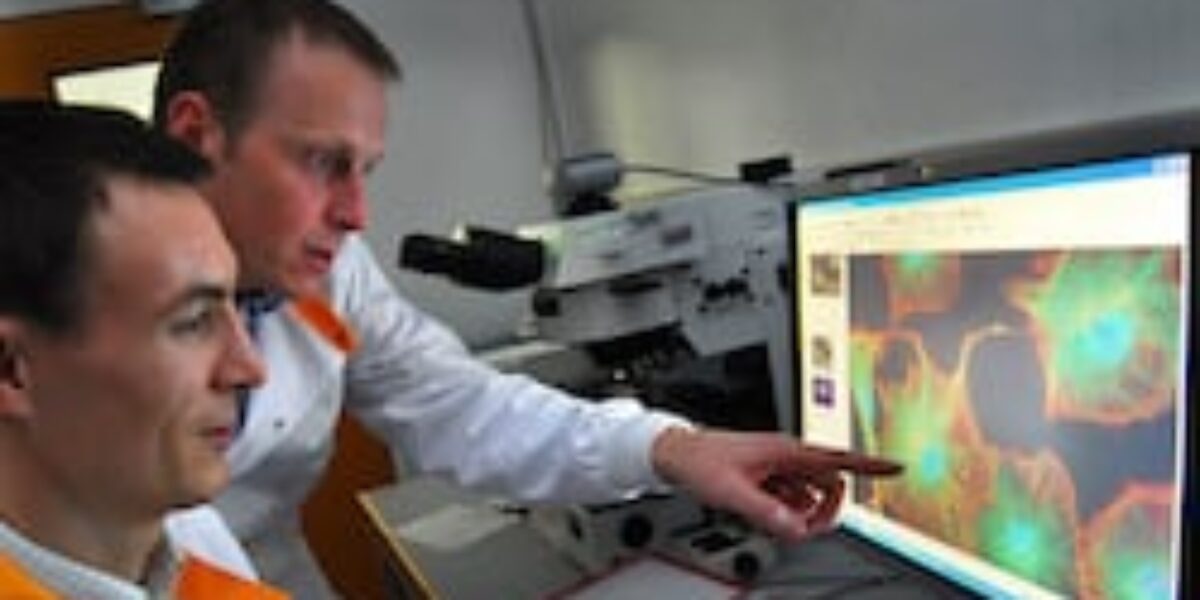Glasgow’s innovation leads the way
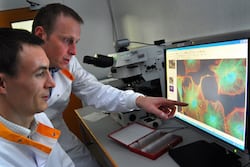
The Scottish city’s life science sector is flourishing – offering the perfect environment for investment and location.
Glasgow is one of Europe’s great cities. It offers residents, visitors and businesses an extraordinary quality of urban life. It is a city where business, trade and investment flourish.
Scotland’s largest city and only metropolitan region, Glasgow generates a whopping £19.25 billion GVA for the national economy per annum – the largest of any Scottish city. Glasgow has a modern mixed economy with strengths in a variety of sectors and sub-sectors from financial and business services to low carbon and renewables, and life sciences.
The city has experienced a remarkable period of growth and development with an excess of £8 billion capital investment since 2011. This investment has resulted in the fruition of a number of key infrastructure projects such as the University of Strathclyde’s Technology and Innovation Centre, three speculative Grade A office developments and Western Europe’s largest hospital complex, including the Queen Elizabeth University Hospital, not to mention the substantial infrastructure investment associated with Glasgow hosting the 2014 Commonwealth Games.
Never a city for resting on laurels, Glasgow is committed to being one of the most sustainable cities in Europe and to attracting the best and the brightest businesses, technology and innovation. The Glasgow and Clyde Valley City Deal will launch another round of investment and development that will see these ambitions become reality. 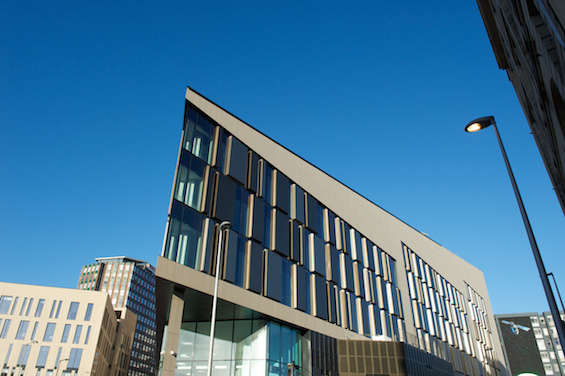
City Deal is a springboard for investment
The Glasgow and Clyde Valley City Deal, funded in partnership by the UK and Scottish governments and the eight local authorities of the city region, will see £1.13 billion injected into the local economy over the next two decades.
The City Deal is expected to give Glasgow and the Clyde Valley a permanent uplift in its GVA of £2.2 billion per annum, generate 15,000 construction jobs during the construction phase and 28,000 permanent additional jobs, and unlock £3.3 billion of private sector investment.
Projects include regeneration and infrastructure work in addition to funding for innovation, business growth and supporting the local labour market with particular emphasis on life sciences and business support.
The City Deal will fund a number of projects to further enhance Glasgow’s thriving life science sector:
• additional funding for an Imaging Centre of Excellence within the Stratified Medicine Scotland Innovation Centre located at the new south Glasgow Hospital campus. This development will see collaboration across NHS Scotland, academic partners and industry partners and provide new imaging, R&D and commercialisation facilities supporting a greater volume and variety of clinical trials.
• support the development of a £4 million MediCity Scotland facility. This facility will bring academics, entrepreneurs, clinicians and business support services together in order to support the development of new healthcare services and medical technology.
• contribute to the development of a new £4 million Centre for Business Incubation and Development that will support service for high-growth companies in the enabling technology, advanced design and manufacturing, and creative economy sectors.
Glasgow BioCorridor: Powerhouse of Scottish life sciences
The City Deal projects are an indication of the importance life sciences and innovation plays in Glasgow’s economy. Further growth through the establishment of world class R&D and commercialisation facilities in the city will not only benefit Glasgow and the Clyde Valley but all of Scotland. 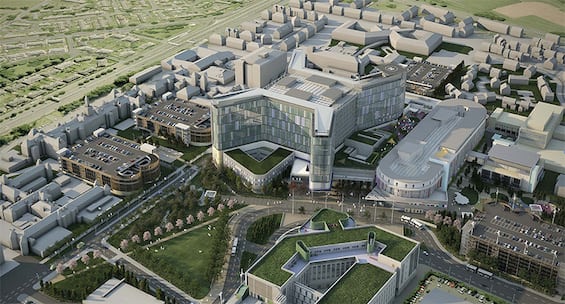
Scotland is home to the second largest life science cluster in the UK and one of the most sizable clusters in Europe. The sector is largely focused on human healthcare – making up around 75 percent of the activity. It has major strengths in medical technology, clinical and translational medicine, pharmaceutical services and regenerative medicine. Agricultural, veterinary, industrial and marine biotechnology all feature strongly also.
The Glasgow BioCorridor contributes significantly to the Scottish life sciences offer. From 2008 to 2012, the area was third in the UK for attracting life science foreign direct investment projects (FDI Markets, 2013). From BioCity Scotland in Newhouse, North Lanarkshire to the GlaxoSmithKline facility in North Ayrshire, the BioCorridor spans less than 50 miles with Glasgow city and its universities, research institutes and hospitals sitting at the heart of the region. The Glasgow BioCorridor now represents the consolidation of a robust partnership across industry, academia and the public sector with a mature, complex supply chain.
The Glasgow BioCorridor offers one of the most valuable assets for life sciences endeavours – its people. Glasgow’s universities and colleges are preparing its graduates in response to the demand for more highly skilled and suitably qualified workers in the life sciences sector. The varied array of life science degrees which are available in the BioCorridor’s higher and further education establishments are thus building a strong, local talent pool.
A number of leading global companies have set up shop in Glasgow and the wider BioCorridor: GlaxoSmithKline, Thermo Fisher Scientific, BioOutsource and Vascutek. More than 10,300 people work in life sciences in the Biocorridor for some 230 life sciences companies, this comprising 36 percent of Scotland’s total number of life science enterprises and 50 percent of Scotland’s medtech companies. A critical mass of companies together with a dynamic, skilled labour force is present in the region where labour costs are significantly lower than London and Cambridge.
There is a real convergence happening in Glasgow’s life science cluster. Significant and sustained investment will ensure forward momentum in the sector.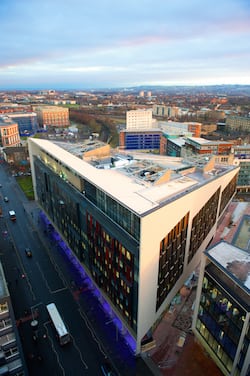
The newly-created Industrial Biotechnology Innovation Centre based at the University of Strathclyde is a unique facility relevant to all industry sectors of Industrial Biotechnology and promotes collaboration within industry and academia to drive innovation, find commercial application for new technology and ideas, and offers support for projects that bring biotechnology closer to industrialisation while creating a single portal for industry to connect with Industrial Biotechnology.
Strathclyde Institute of Medical Devices offers research brokering, spin-in and spin-out information, support and advice for clinicians and clinical staff with research needs (including advice on postgraduate study or research in Medical Devices). In addition the Institute retains close links with the medical technology industry in Scotland and the rest of the UK and actively encourages contact from SMEs as well as established medical companies.
The development of the Queen Elizabeth University Hospital and South Glasgow Hospitals campus will significantly enhance healthcare services for the people of Glasgow, incorporating a wider medical campus that includes substantial clinical and academic research facilities. This provides an opportunity to create a unique life science research and development cluster that will benefit not only Scotland but the UK as a whole and bolster the region’s attractiveness for inward investment.
Glasgow has a reputation as a trailblazer and pioneer in life sciences with a distinguished history of innovations and eminent thinkers from Lister to Fleming. There is every indication that the city’s vibrant, contemporary life science sector will continue to innovate and lead the way. Choose Glasgow and you’ll be in excellent company.

